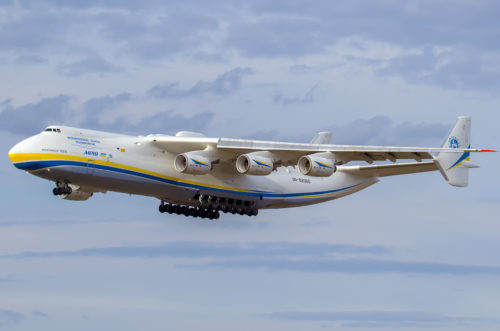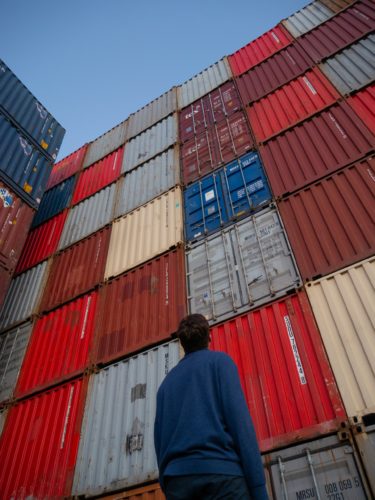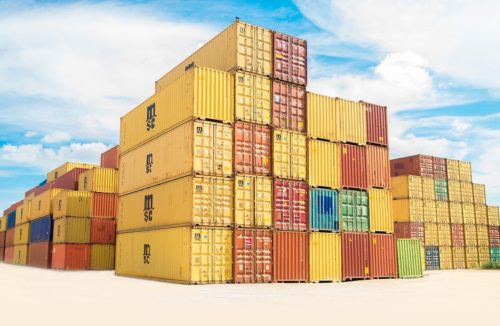Blow against global supply chains. Since the war in Ukraine is causing a problem in the supply chains. In other words, “global supply chains act like a circular system in which a problem at one point can affect the whole.” So says Oriol Montanyà, director of the UPF Total Supply Chain Management Postgraduate course for the Capital media outlet.
According to Montanyà, Russia and Ukraine are points of reference in terms of raw materials. Among them from the technology, automotive, energy and food sectors. And it is that estors would be the most affected sectors. Well, Ukraine and Russia are considered “breadbaskets of Europe”.
Breadbaskets of Europe
In this sense, Russia is the world’s leading producer and exporter of wheat. In turn, Ukraine “is responsible for supplying 35% of the cereals that enter the European Union.”
Regarding the technology and automotive sectors, Montanyà considers that both bordering countries “are large producers of metals […] essential for the manufacture of cars and electronic devices”.
Both Slavic countries are also starring in the crisis in the energy sector. And it is that Russia is the world’s second largest oil exporter. At the same time as we mentioned in previous posts, it supplies 40% of the natural gas in the EU. In addition, the energy sector has transversal implications. In other words, it can affect various sectors of activity.
Also, It should be pointed out that the Russian Federation has remarkable reserves of copper and aluminum. Without forgetting the production of palladium that is used in the manufacture of cars. On the other hand, Ukraine is a major producer of nickel, which is used in the manufacture of electronic chips.
Logistics and transport, greatly affected in terms of global supply chains
And it is that many shipping companies have stopped operating in the port of Russia. This is due to the fact that many European ports are not going to receive ships originating from the Slavic power. “This is causing an imbalance between the usual flows of goods,” explains Montanyà. And it is that maritime transport is like a kind of gear, in which when a route is broken it becomes uneven.
Besides, Land transport and air freight transport also suffer the consequences of the conflict. Since the routes have had to deviate from these countries, lengthening them. In a framework in which supply chains are global and interdependent, it assumes that transport from these countries affects supplies on a global scale.
Furthermore, “global supply chains have already been shown to be fragile.” An example of this statement is the situation of the Ever Given when it ran aground in the Suez Canal and “put world trade in check”.
Sanctions on Russia affect us
“We are already seeing consequences in the price of energy, transport and the availability of some products,” says Montanyà. And the fact is that the global effects “will increase if the armed conflict and the crossed sanctions continue”. This is due to the fact that we are “facing a supply model so interconnected at a global level that economic sanctions are like a boomerang”.
To circumvent these sanctions, companies are looking for alternative routes and suppliers to source products from Russia or Ukraine. But these alternatives suppose an increase in costs and a decrease in the availability of the product.
Global supplies and consumers
In previous crises, Montanyà recalls that “it was confirmed that we have great professionals in the logistics sector who […] prevent mishaps from reaching the consumer”.
The two imminent effects for the consumer in this type of difficulties that affect global supply chains are the following:
- the increase in prices: because the companies increase the costs
- the drop in the availability of the product: due to problems of supply of raw materials and transport
In this sense, transport is the most important link in the supply chain. And, many times, “invisible”. Although for Montanyà, what is relevant is to see it as “a whole”, united and with a global vision. Because as he manifests, having a partial vision or by links causes fragility in the chain.
“In many companies they are seeing that logistics and supply chains are not just a lever for cost savings. What’s more, they are noticing that they have a strategic importance and competitive advantage”. And he concludes stating that “those companies that provide supply chains with talent, training or prepared professionals, are the ones that are best coming out of the doldrums”
Source: Capital


